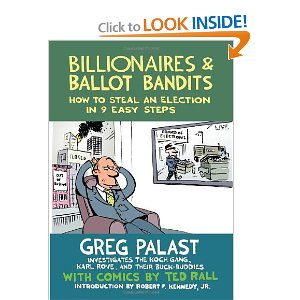
Jeffrey St Claire, the editor at Counterpunch has given me permission to distribute the attached essay, “The Arab Spring at the Crossroads,” by Esam Al-Amin. It was published in the subscription edition of Counterpunch and is not available at the CP website. Al-Amin, who I do not know, has written a very informative summary of the crosscurrents now shaping the Arab world. This is a subject of very great importance to the welfare of all Americans. I urge you to read it carefully.
In addition to being informative, Al-Amin's essay is a prime example of the quality of the information now available in what the mainstream media likes to call the alternative press. This brings me to my second reason for writing this blaster. Counterpunch is having a rare fundraising drive and I am taking what for me is an unprecedented action of urging you to contribute. I think it is important to support alternative news/opinion outlets like Antiwar.com, Truthout, Alternet, and especially, since I am biased, Counterpunch. (Truth in advertising: I counted the late editor Alex Cockburn and still count his co-editor Jeffrey St Claire as friends.)
So, I urge you read the essay below — you can determine whether or not you think it stands on its own merits. If you feel this is the kind of info worth paying a little for, I encourage you to think about purchasing a subscription or a gift sub for a friend or relative or sending a small tax-deductible donation to CP's secure sever. The Counterpunchers promise they won’t contact you to shake you down for more money or sell your name to any lists–not Karl Rove’s and especially not MoveOn’s. To contribute by phone you can call Becky or Deva toll free at: 1-800-840-3683
Chuck Spinney
Please Contribute to CounterPunch. Printable Document: Esam Al-Amin on Arab Spring Seven Challenges (9 Page Doc)
The Arab Spring at the Crossroads
Seven Key Challenges
By Esam Al-Amin
CounterPunch Volume 19 Number 17, >October 1-15, 2012, published October 2, 2012
Ever since Napoléon Bonaparte invaded Egypt in 1798, the relationship between the West and the Arab-Muslim East has been contentious and convoluted. Although this military leader of the first French Republic conquered Egypt for strategic reasons in his rivalry with the British and the Ottomans, the Muslim Arabs of the region – later dubbed “the Middle East” by an American naval officer – felt vulnerable, exposed, and weak.







